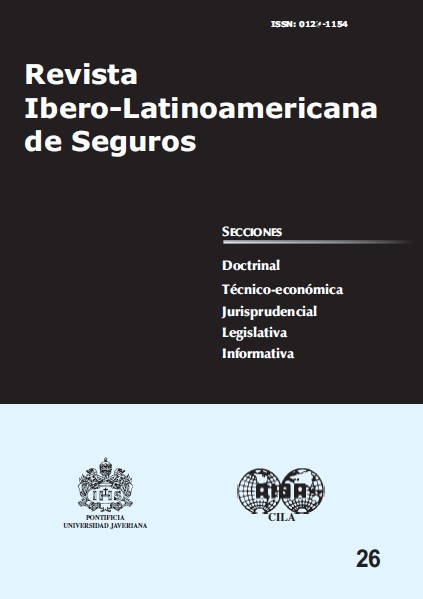Abstract
“Offshore societies” are entities constituted in tax havens and characterized by the development of their corporate activities in a different country from the one they were set up. “Captive companies” are a type of offshore society involved in insurance activities, and their characteristics include being constituted by a parent company, which may be a part of a holding group or not; and being the recipient of most of
the main company’s risk and that of its subsidiaries. The two major benefits of having a “Captive companies” are:
1. It provides a channel that allows for a smaller fiscal impact to the insurance captive, and to the parent company itself, through different mechanisms contemplated in the law.
2. The second benefit is that it allows the parent company to change and improve the way it manages risk. The lease of “Captive companies” takes place when the capital is at the disposal of other societies that attempt to obtain the previously mentioned benefits, through the payment of a fee. This figure gives place to “Cellular capital companies”, where the capital is divided into cells, which can only be used by the corresponding beneficiary, eliminating any possibility that one single disaster absorbs the totality of an insurance company’s capital. The best way to execute this operation is through the use of a figure known as “fronting”, where a Colombian insurance company subscribes an insurance policy and yields it to a foreign insurance captive.
This journal is registered under a Creative Commons Attribution 4.0 International Public License. Thus, this work may be reproduced, distributed, and publicly shared in digital format, as long as the names of the authors and Pontificia Universidad Javeriana are acknowledged. Others are allowed to quote, adapt, transform, auto-archive, republish, and create based on this material, for any purpose (even commercial ones), provided the authorship is duly acknowledged, a link to the original work is provided, and it is specified if changes have been made. Pontificia Universidad Javeriana does not hold the rights of published works and the authors are solely responsible for the contents of their works; they keep the moral, intellectual, privacy, and publicity rights.
Approving the intervention of the work (review, copy-editing, translation, layout) and the following outreach, are granted through an use license and not through an assignment of rights. This means the journal and Pontificia Universidad Javeriana cannot be held responsible for any ethical malpractice by the authors. As a consequence of the protection granted by the use license, the journal is not required to publish recantations or modify information already published, unless the errata stems from the editorial management process. Publishing contents in this journal does not generate royalties for contributors.


